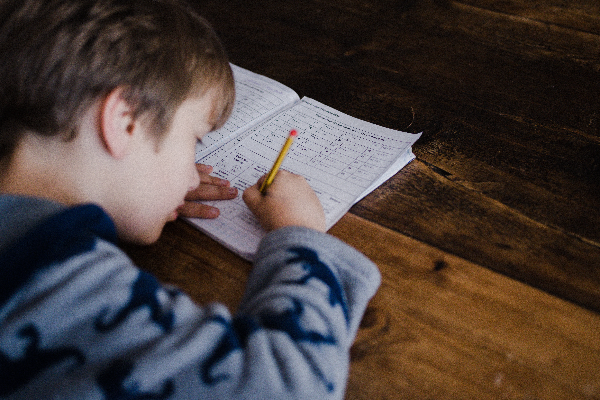The Hidden Benefits of Homework: What Every Parent Needs to Know
 In the ever-evolving landscape of education, one constant remains - the significance of regular homework for children. Particularly for children aged six and over, homework serves as a vital tool in reinforcing classroom learning, fostering independent thinking, and instilling a sense of responsibility. This article delves deeper into the importance of maintaining a consistent homework routine for children in this age group and offers practical tips for parents and educators alike.
In the ever-evolving landscape of education, one constant remains - the significance of regular homework for children. Particularly for children aged six and over, homework serves as a vital tool in reinforcing classroom learning, fostering independent thinking, and instilling a sense of responsibility. This article delves deeper into the importance of maintaining a consistent homework routine for children in this age group and offers practical tips for parents and educators alike.Reinforcing Classroom Learning
Homework is more than just an extension of the classroom learning experience. It is a bridge that connects the school and home, allowing children to review and practice what they've learned in a comfortable environment. By doing their homework regularly, children aged six and over can consolidate their academic knowledge, thereby solidifying their understanding and retention of the material. This consistent reinforcement helps them perform better in tests and exams, leading to improved academic performance.
Developing Independent Thinking
Regular homework does more than just encourage children to think independently. It serves as a platform for them to explore their curiosity, ask questions, and find solutions on their own. This process fosters critical thinking and problem-solving skills, which are not only essential for their future academic success but also for navigating the challenges of life. Regular homework assignments that challenge their thinking can help children aged six and over to become confident, independent learners.
Instilling Responsibility and Time Management
Regular homework is a practical tool for teaching children about responsibility and time management. By setting homework deadlines, children learn the importance of punctuality and the consequences of procrastination. They learn to manage their time effectively, balancing their homework with other activities. This early introduction to time management prepares them for the more demanding schedules they'll encounter in higher education and their future careers.
Enhancing Parent-Child Interaction
Homework also serves as a catalyst for enhancing parent-child interaction. It provides an opportunity for parents to engage with their children's education actively. By assisting with homework, parents can monitor their child's progress, identify areas of strength and weakness, and provide necessary support. This involvement can strengthen the parent-child relationship and foster a supportive learning environment at home.
Building Self-Esteem and Confidence
Regular homework completion can also contribute to building a child's self-esteem and confidence. As children tackle homework assignments and overcome academic challenges, they experience a sense of accomplishment. This success can boost their confidence in their abilities, motivating them to take on more challenging tasks.
Conclusion
In conclusion, regular homework plays a pivotal role in a child's educational journey. For children aged six and over, consistent homework not only reinforces classroom learning but also cultivates essential life skills like independent thinking, responsibility, and time management. As parents and educators, it's crucial to encourage and support children in their homework routine, ensuring they reap the maximum benefits. The impact of regular homework extends beyond academics, shaping the character and future success of our children.
 Blog
Blog